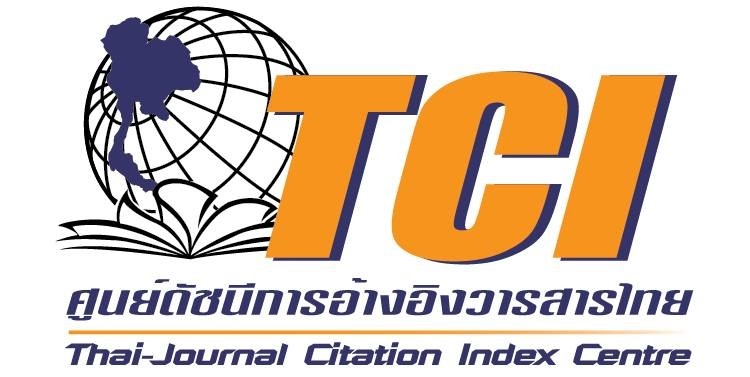The The Impact of Social Media Marketing on Retailer Sales:A Case Study of J Cosmetics Company, China
คำสำคัญ:
Social Media Marketing, Retailer Sales, Content Strategy, Engagement, Platform Usage, Advertising, Influencer Marketingบทคัดย่อ
This research aimed to identify and analyze the factors influencing the impact of social media marketing on retailer sales. The sample consisted of 414 consumers who had utilized the services or purchased products from J Cosmetics Company through major social media platforms, namely Rednote, TikTok, WeChat, and Weibo. The sample size was determined using Cochran’s formula with a 5% margin of error and a 95% confidence level. Data were collected using a structured questionnaire, which exhibited Cronbach’s alpha coefficient of 0.902. Data analysis included averages, percentages, Pearson’s correlation analysis, and multiple regression analysis. Results showed that content strategy, engagement, platform usage, advertising, and influencer marketing all had a significant positive impact on sales performance. Advertising had the strongest positive correlation with sales performance (r = 0.473, p < 0.01), followed by content strategy (r = 0.422, p < 0.01). The regression model explained 30.5% of the variance in sales performance. All five hypotheses, which proposed positive relationships between the social media marketing variables and sales performance, were supported. The study concluded that social media marketing plays a crucial role in driving retailer sales, and J Cosmetics Company should focus on diversifying product offerings, building a strong brand community, enhancing data-driven personalized marketing, and engaging in co-branding collaborations to further enhance their social media marketing effectiveness.
เอกสารอ้างอิง
Alalwan, A. A., Dwivedi, Y. K., Rana, N. P., & Williams, M. D. (2017). Social media in marketing: A review and analysis of the existing literature. Telematics and Informatics, 34(7), 1177–1190.
Ashley, C., & Tuten, T. L. (2021). Creative strategies in social media marketing: An exploratory study of branded social content and consumer engagement. Journal of Marketing Theory and Practice, 29(2), 162–179.
Bilgin, Y. (2020). The effect of social media marketing activities on brand loyalty, brand image and brand trust. Business & Management Studies: An International Journal, 8(1), 382–401.
Chae, J. (2018). The role of social media in the marketing of beauty products: A study of the impact of social media on consumer behavior. Journal of Consumer Marketing, 35(1), 15–23.
Chen, H., & Zhang, J. (2024). Factors influencing consumers' purchasing decisions under the live-streaming sales model: A case study of Douyin. E-commerce Review, 13(3), 1010.
De Veirman, M., Cauberghe, V., & Hudders, L. (2017). Marketing through Instagram influencers: The impact of number of followers and product divergence on brand attitude. International Journal of Advertising, 36(5), 798–828.
De Veirman, M., Cauberghe, V., & Hudders, L. (2020). Marketing through Instagram influencers: The impact of number of followers and product divergence on brand attitude. International Journal of Advertising, 39(5), 798–828.
De Vries, L., Gensler, S., & Leeflang, P. S. H. (2017). Popularity of brand posts on brand fan pages: An investigation of the effects of social media marketing. Journal of Interactive Marketing, 37, 83–91.
Djafarova, E., & Trofimenko, O. (2019). Exploring the relationship between young consumers' trust in influencers and their purchasing intentions. Journal of Retailing and Consumer Services, 50, 200–209.
Huang, J., & Shao, C. (2020). The impact of social media influencers on consumers’ purchase intentions: The mediating role of consumer engagement. Journal of Marketing Theory and Practice, 28(1), 5–22.
Hwang, J., & Kim, S. H. (2020). The role of brand personality in online brand communities: Evidence from the cosmetic industry. Journal of Business Research, 117, 362–371.
Kaplan, A. M. (2020). Users of the world, unite! The challenges and opportunities of Social Media. Business Horizons, 63(1), 67–75.
Kemp, S. (2023). Digital 2023 Global Overview. DataReportal. https://datareportal.com/reports/digital-2023-global-overview-report
Ki, C. W. C., & Kim, Y. K. (2019). The mechanism by which influencer marketing affects consumers’ purchase intention: The mediating role of trust and perceived value. Journal of Retailing and Consumer Services, 49, 86–95.
Kim, A. J., & Ko, E. (2017). Impacts of luxury fashion brand social media marketing on customer perception and purchase intentions. Journal of Business Research, 70, 595–602.
Kumar, A., Bezawada, R., Rishika, R., Janakiraman, R., & cuevas, R. (2021). From social to sales: The effects of social media marketing on retail store sales. Journal of Marketing, 85(6), 66–84.
Kumar, V., & Gupta, S. (2016). Measuring the impact of social media on sales. Journal of Business Research, 69(8), 3147–3152.
Leeflang, P. S., Verhoef, P. C., Dahlström, P., & Freundt, T. (2020). Challenges and solutions for marketing strategy in the digital era. European Journal of Marketing, 54(1), 1–16.
Li, H. (2020). The impact of word-of-mouth marketing based on social media on consumer behavior. Hans Journal, 8(3), 45–53.
Li, Y., Wang, X., & Zhao, L. (2021). Social media marketing strategies and their impact on brand equity in the Chinese cosmetics industry. Journal of Retailing and Consumer Services, 58, 102325.
Lou, C., & Yuan, S. (2021). Influencer marketing: How message value and credibility affect consumer trust of branded content. Journal of Interactive Advertising, 21(3), 196–213.
Marbach, J., Lages, C., & Nunan, D. (2017). Social media content and consumer interaction: Strategies for beauty brands. Journal of Consumer Marketing, 34(2), 200–210.
Tuten, T. L., & Solomon, M. R. (2017). Social Media Marketing. Sage Publications.
Tuten, T. L., & Solomon, M. R. (2018). Social media marketing. Sage Publications.
Wang, L. (2021). The impact of brand social media advertising content on consumer social media engagement. Journal of Guizhou University of Finance and Economics, 39(2), 50–60.
Wang, Q., & Kim, K. H. (2017). Social media usage and its impact on organizational performance: A study of Chinese firms. Information & Management, 54(6), 713–724.
Wang, Y., Li, W., Li, J., & Song, Y. (2021). How social media advertising affects users’ purchase intention: A dual process perspective. Internet Research, 31(5), 1481–1502.
ดาวน์โหลด
เผยแพร่แล้ว
รูปแบบการอ้างอิง
ฉบับ
ประเภทบทความ
สัญญาอนุญาต
ลิขสิทธิ์ (c) 2025 Journal of Public and Private Issues

อนุญาตภายใต้เงื่อนไข Creative Commons Attribution-NonCommercial-ShareAlike 4.0 International License.


 ผศ.ดร.ละมัย ร่มเย็น
ผศ.ดร.ละมัย ร่มเย็น






